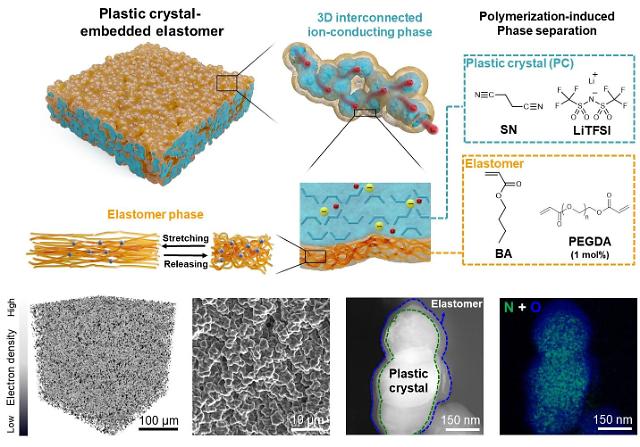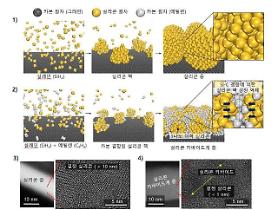
[Courtesy of KAIST]
All-solid-state batteries are seen as a next-generation power source for electric vehicles as solid electrolytes are nonflammable and more stable. They can have a higher energy density than lithium-ion batteries. Solid-state batteries enable faster charging, higher voltage and longer cycle life. The most ideal anode material is lithium metal.
Solid-state electrolytes ensure the safe operation of lithium metal batteries as they suppress the uncontrolled growth of lithium dendrites. However, their mechanical properties and electrochemical performance do not meet the requirements for practical applications.
Based on a class of elastomeric solid-state electrolytes with a three-dimensional interconnected plastic crystal phase, researchers have developed high-energy, solid-state lithium batteries. The elastomeric electrolyte system presents a powerful strategy for enabling the stable operation of high-energy, solid-state lithium batteries, according to the state-run Korea Advanced Institute of Science and Technology (KAIST).
The study was led by Kim Bum-joon, a KAIST professor of chemical and biomolecular engineering, who teamed up with Lee Seung-woo, an associate professor of the George W. Woodruff School of Mechanical Engineering at the Georgia Institute of Technology.
"We have secured the original technology of elastomeric solid-state," Kim said in a statement on January 13. "It dramatically improves the problem of existing solid electrolytes and the manufacturing process is very simple, so it will become a game-changer for solid-state battery electrolytes."
Elastomeric electrolytes showed stable performance even in a high-voltage all-solid-state battery of 4.5V or higher, which consists of a lithium metal anode and a nickel-rich cathode (NCM-Ni83), KAIST said. Kim's research paper was published on the website of Nature, a scientific journal based in London.
Copyright ⓒ Aju Press All rights reserved.



